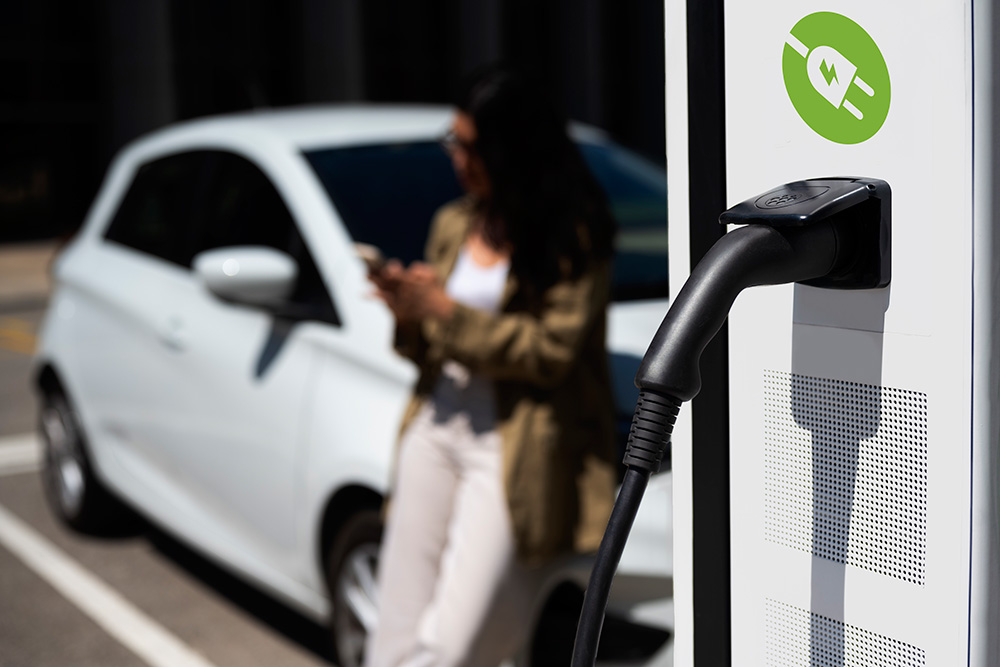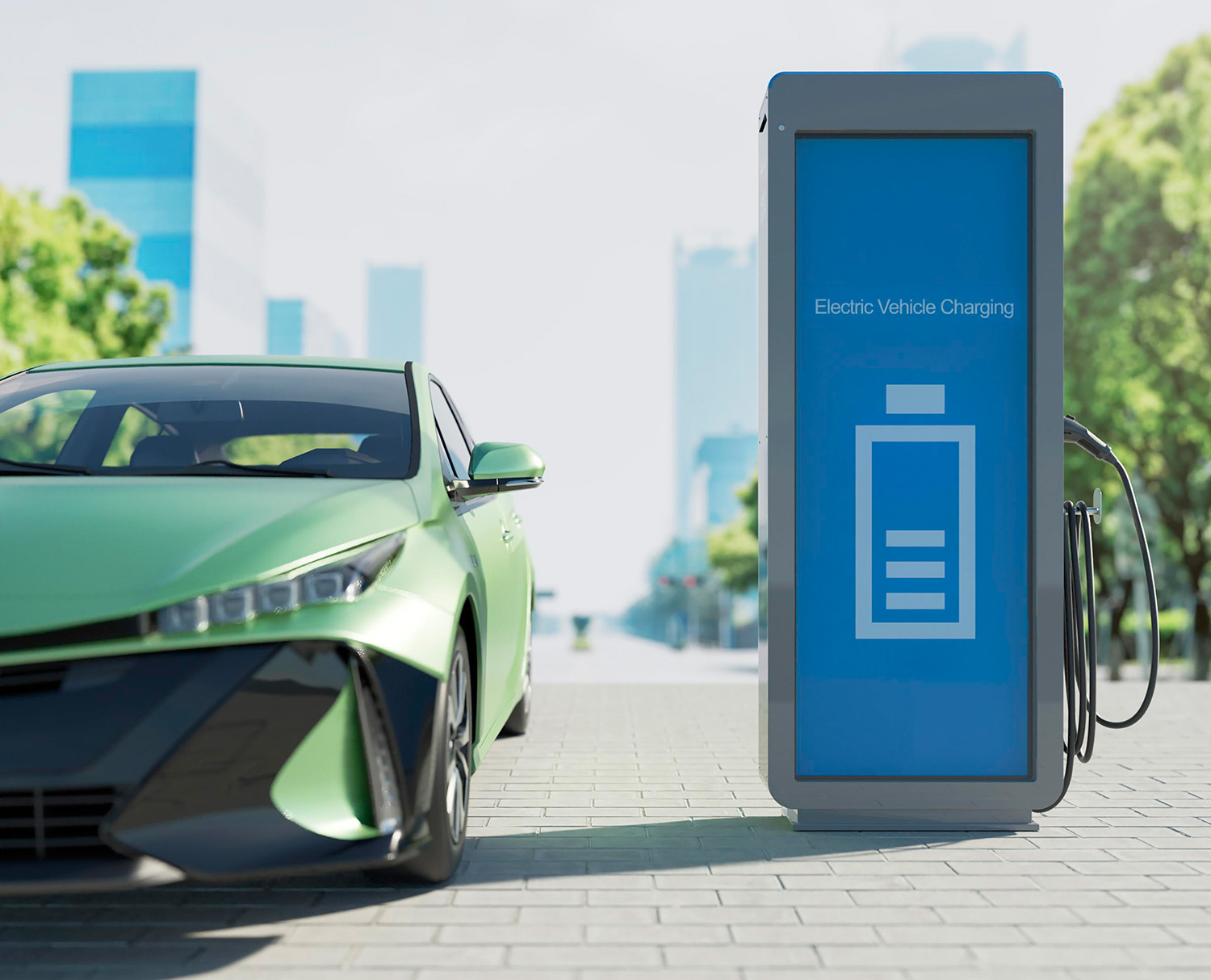Summary
Installing office EV chargers can be very expensive. This article explores the benefits of installing commercial EV chargers in your workplace, how to reduce the installation cost, and important considerations for choosing suitable chargers.
Table of Contents
Introduction
Businesses are increasingly realizing how important it is to encourage environmentally friendly workplace practices as the globe moves toward a more sustainable future. Installing office-use electric car chargers is a straightforward yet effective approach to achieve this. This shows your company’s dedication to lowering its carbon footprint and promoting a better environment while also offering a useful amenity for staff members and guests who drive electric cars.
With the growing adoption of electric vehicles, offices with charging infrastructure will have a competitive advantage in attracting and retaining top talent. While the cost of EV charging installation might be prohibitive, your technician can help you apply for rebates, funding, and tax opportunities.
This article discusses the advantages of putting electric car chargers in your office building, selecting the appropriate charger, and completing a successful installation.
The Growing Popularity of Electric Vehicles
The popularity of electric vehicles in the United States is growing rapidly, with a 40% rise in new electric car registrations and over 1.4 million new electric car registrations, accounting for 10% of total vehicle sales in 2023.
Government subsidies, lower battery costs, and increased model options are driving the growing demand for electric vehicles. The government’s updated Clean Vehicle Tax Credit eligibility criteria and price reductions have made electric cars more affordable and accessible. Furthermore, states like California are leading the push for electric vehicle adoption, with others expected to follow.
Reasons to Equip Your Office with Electric Car Charging Stations
There are several reasons to equip your office with car chargers. Some of them are:
- Attract new employees: Top talents are drawn to companies that prioritize their comfort and provide a healthy work-life balance. A company with office EV chargers gives employees access to convenient and cheap charging solutions. This also contributes to better job satisfaction, making your best talent easy to retain.
- Attract new customers: The foot traffic attributed to installing public EV chargers on your property will lead to more business for you. An electric vehicle’s battery typically takes 30 minutes or more to charge fully. Car owners will likely browse your store during that period and make more purchases.
- Additional source of revenue: Installing EV chargers in the office generates an additional income stream and increases your revenue. Car owners can be charged per time spent on the charging spot or energy consumed. Either way, it presents an incredible opportunity to get more customers, retain your best talents, and make more money.
Business Benefits of Installing Office EV Chargers

The following are some benefits of installing commercial EV chargers in your workplace:
1. Tax Incentives and Rebates
Public EV charging infrastructures are expensive to install, so businesses are given tax incentives, rebates, and grants to help reduce the strain on their budgets. Governments often offer attractive incentives to encourage sustainable practices like electric vehicle technology. These incentives lower both the initial investment and operational costs.
2. Increased Property Value
Installing EV charging infrastructure on your property will boost its value. Because of the increasing need for EV charging infrastructure, buildings with chargers will soon become a top priority for tenants and potential buyers. Getting yours in early allows you to charge a premium and get a competitive advantage over other businesses.
3. Energy Savings
Commercial EV chargers can optimize energy usage, reducing your strain on the grid. This helps ensure that your outlets are not at risk of overloading and energy usage is consistent with business goals.
How to Choose the Right Electric Car Charger for Your Office
Here are some tips for selecting the right EV charger for your office:
1. Charger Types
Electric vehicle chargers can be differentiated by their charging speed. Installing a commercial charger in your workspace means you need one with decent speed. The three types of EV chargers are:
- Level 1 chargers: These chargers are the cheapest option available. However, their poor charging speed renders them unsuitable for commercial use. They need a 120-volt outlet and can take up to 8 hours or more to fully charge an electric vehicle.
- Level 2 chargers: Level 2 chargers are more expensive but provide faster charging speeds than level 1 chargers. It takes a few hours to fully charge an electric vehicle battery, making them ideal for commercial applications.
- DC Fast Chargers: These are the fastest and most expensive EV chargers. They are costly to install since they necessitate specialist equipment and extra work on your electrical grid. DC Fast Chargers usually take about 30 minutes to charge an EV battery.
Public chargers require decent speed, so you should only choose between level 2 and DC Fast Chargers for your workplace.
1. Installation Costs
The installation cost is the most significant determinant in choosing an EV charger for your office. Plan according to your budget and ensure your option perfectly fits your needs. While DC fast chargers and level 2 chargers are the best options for commercial use, the installation and operational costs for DCFC can be prohibitive for small businesses. In contrast, level 2 chargers are more manageable as they don’t require much additional work.
2. Scalability
When choosing an EV charger for your business, you should prioritize chargers that can be upgraded in the future. This allows your business to easily update the chargers’ software and firmware without spending significantly on a replacement.
Steps to Install Office EV Chargers

Installing an EV charger is a critical and expensive project; you must ensure all due processes are followed to prevent delays, fines, or worse, bad installation. The following are essential steps when preparing for an EV charging installation:
1. Site Assessment
Before installing EV charging stations in your workplace, it is essential to have a professional inspect your site for electrical panel upgrades and also choose the best location for the chargers. These assessments ensure your building is suitable and well-prepared for the added electrical load.
2. Permits and Regulations
Before constructing EV charging stations, ensure you have the relevant permits and are not violating municipal regulations. Adhering to building codes, electrical standards, and permitting procedures will help your project run successfully.
3. Choosing a Reliable Installer
Electric charger installation is dangerous work. You must be careful when choosing your installation partner. Prioritize experience, expertise, and knowledge of local building codes, laws, and permitting requirements. Also, ask to review past work as proof of expertise. The wrong installer puts your equipment, building, employees, and car owners at risk of electrical fire, electrocution, and explosions.
Case Studies: Businesses with Successful EV Charging Installations
Several businesses have successfully installed electric vehicle charging stations. Notable references include Google’s Los Angeles campus, which has added 100 EV charging stations to reduce emissions and facilitate employees’ environmentally friendly commutes. The Los Angeles County Metropolitan Transportation Authority (LA Metro) has also built 92 EV charging stations throughout its facilities. Other examples include UCLA, which has 40 EV charging stations, and the city of Beverly Hills, which has ten public EV charging stations.
Future Trends in Office EV Charging
1. Wireless Charging Solutions
Mobile phones and computers have all incorporated wireless charging; EVs are next. With electromagnetic induction coils installed on the bottoms of EVs, you can now charge your car without opening the charging port or getting out of the vehicle. This technology makes charging convenient and opens up the next stage, which is charging while on the move.
2. Integrating with Smart Grids
Integrating with smart grids entails linking and coordinating electric vehicle (EV) charging infrastructure with cutting-edge technology such as real-time monitoring and control systems, data analytics and management platforms, IoT sensors and devices, and enhanced metering infrastructure.
Conclusion
Getting an electric car charger for your office is a sound investment as it offers various economic, environmental, and financial benefits. However, to reap all these benefits, you must ensure that you have chosen a suitable charger, have the right installer, and have local permission for the project. Installing a commercial electric car charger can be costly and stressful. Contact Tercero Inc. for assistance with EV charger installation.
Frequently Asked Questions (FAQs)
Some benefits of installing EV chargers for your office are increased customer attraction, talent retention, and additional revenue stream for your business.
Before installing EV chargers, you should conduct a site assessment, ensure you have all necessary permits, and choose a reliable installer. From there the installer can help you with acquiring the chargers, building out the needed infrastructure, and getting the charger installed.
To choose the perfect charger for your needs, consider the type and speed of the charger you need, installation costs, and potential for future upgrades.
To get a reliable installer, consider expertise, certifications, past work, knowledge of various charging systems and connectors, reviews, and compare costs with other contractors.
You should install EV chargers in your office to take advantage of tax rebates and government grants and gain a competitive advantage over other businesses while simultaneously adding an amenity for your employees.

